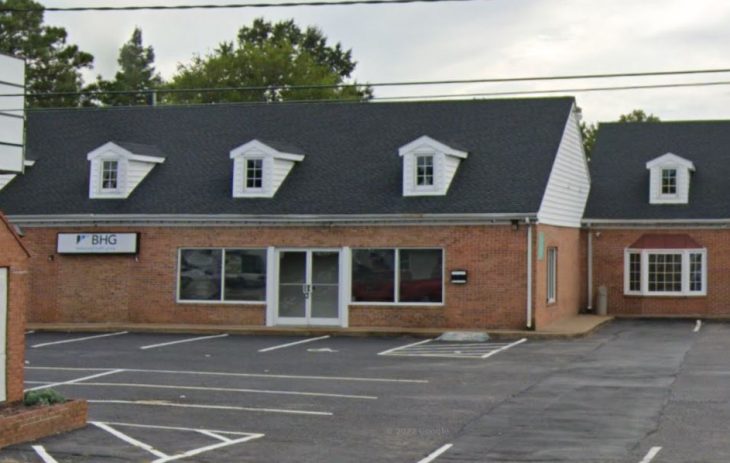About BHG Virginia Beach Treatment Center
Established in 2016, BHG Virginia Beach Treatment Center assists with opioid recovery efforts throughout the independent city of Virginia Beach, Virginia. Located in the heart of the city, this clinic guides adults toward long-term abstinence through medication-assisted treatment (MAT). They’re southeast of the popular Mount Trashmore Park and the Virginia Museum of Contemporary Art.
With a focus on inclusive and compassionate opioid recovery, they provide outpatient support to LGBTQ+ individuals, people living with HIV/AIDS and pregnant or postpartum women. They partner with community agencies and local leaders across Virginia Beach to raise awareness and expand access to MAT.
Whole-Person Care for Lasting Wellness
BHG Virginia Beach Treatment Center embraces a whole-person recovery approach that begins with MAT. This involves a prescription of methadone, buprenorphine or Suboxone, Zubsolv or Bunavail as part of your personalized care. These FDA-approved medications ease painful withdrawal symptoms and reduce cravings.
Counseling addresses emotional challenges while building strategies to prevent relapse. Your therapist will also identify and treat co-occurring mental health conditions like depression. As you progress, they’ll connect you with community resources for employment, transportation and medical care.
Flexible, Convenient and Affordable Treatment
While there’s room for improvement in BHG’s overall service delivery, many past clients have expressed satisfaction with the support they received. They accept Medicaid, Medicare and several commercial health insurance plans. This center even offers an income-based sliding fee scale rate for eligible uninsured patients.
You can maintain your job, school or family responsibilities while recovering. You can dose at the clinic or receive a prescription to fill at your local pharmacy. Take-home privileges may become available once you’re stabilized if you choose to dose at the clinic. In addition, you can attend therapy sessions either in person or virtually.
Levels of Care
-
Outpatient
In outpatient therapy, you’ll attend therapy sessions several times each week while living at home. This is ideal if you have a strong support system and a lower risk of relapse. Outpatient treatment offers flexibility to maintain work, school or family obligations.
-
Dual Diagnosis
Dual diagnosis programs address substance use disorders and co-occurring mental health conditions simultaneously. This integrated approach to care improves the likelihood of long term recovery and stability by addressing the root causes of addiction.
Detox Service Setting
-
Outpatient Detox
Outpatient detox gives you access to medically supervised withdrawal services while still allowing you to live at home. You’ll attend a clinic for treatment and monitoring. This flexible option is suitable for those with mild to moderate withdrawal symptoms who have strong support systems.
Programs
-
Adult (18+)
Adult programs address the substance use and life challenges specific to adults. Therapists can deliver sessions in individual, group and family settings. Services often include job support and life skills training in a structured environment.
-
Alcohol Detox
Alcohol detox programs offer medical support to help individuals withdraw safely from alcohol. Your care team may use medications to ease your symptoms and provide medical monitoring to address complications.
-
Cognitive Behavioral Therapy
Cognitive behavioral therapy focuses on changing harmful thought patterns and behaviors associated with addiction. You’ll learn healthier coping mechanisms by identifying and replacing negative thoughts. This improves your emotional resilience and decreases your relapse potential.
-
Men
Men's programs address substance use while also considering the social pressures, family roles and mental health concerns that are specific to men. You’ll learn healthy coping mechanisms as you build emotional resilience and develop communication skills.
-
Opioid Detox
Opioid detox uses medications to ease severe withdrawal symptoms. It also includes medical supervision to help you manage potential complications. These services allow you to stabilize and begin a recovery plan.
-
Rational Behavior Therapy
Rational behavior therapy helps you identify irrational beliefs that contribute to an addiction. Challenging and modifying those beliefs helps you develop healthier attitudes and behaviors. This therapy supports long term sobriety and sustainable recovery.
-
Women
Women's programs offer a safe and supportive space to focus on gender specific issues such as trauma, family roles and mental health conditions. Therapists tailor the sessions to address women's needs and foster empowerment in a healing and nurturing environment.
-
Young Adult (18 - 25)
Young adult programs are designed for individuals who are transitioning into adulthood. Topics of discussion typically include identity, independence and peer relationships. Providers may also offer life skills training and career support.
Accreditations
-
 SAMHSA
SAMHSA
Contact
5715 Princess Anne Road
Virginia Beach, VA 23462





